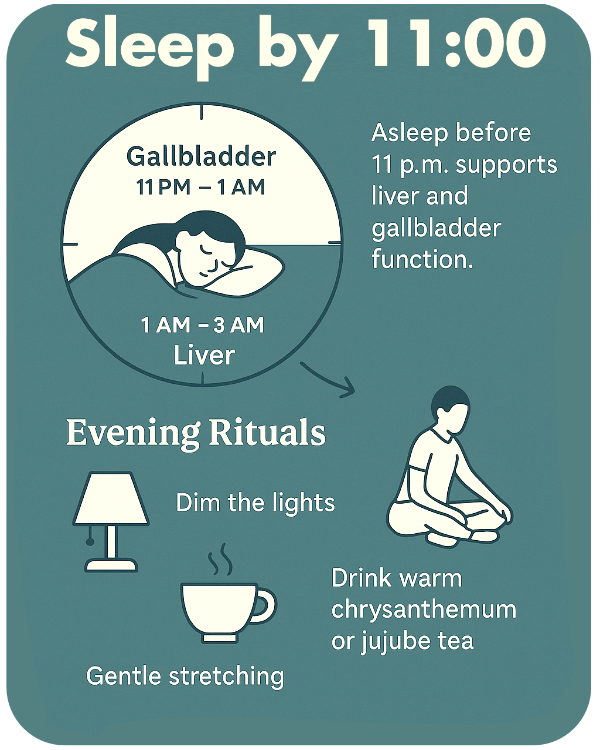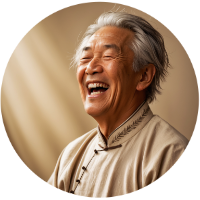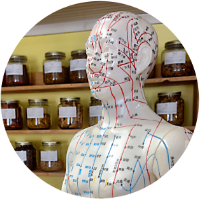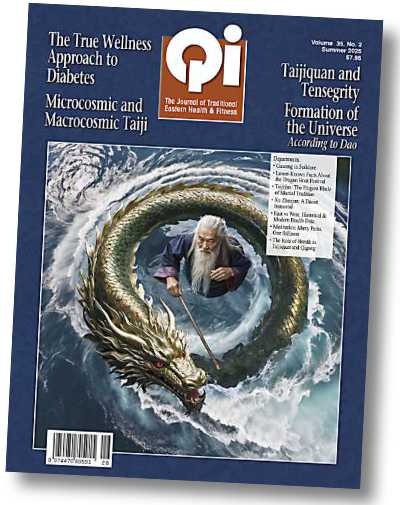Sleep by 11:
What TCM Says About Bedtime
In traditional Chinese medicine, the body is understood to follow a natural rhythm that mirrors the movement of Qi (energy) through the twelve main meridians. Each organ system has a two-hour period when its energy is strongest, and between 11 p.m. and 3 a.m., the Liver and Gallbladder take center stage. According to this view, being asleep before 11 p.m. allows these two organs to carry out essential restorative functions that support detoxification, emotional balance, and overall vitality.
The gallbladder’s time, from 11 p.m. to 1 a.m., is associated with decision-making and courage. If you are still mentally active or emotionally stirred during this window, it can disturb the flow of Qi and affect not only physical digestion but also the ability to face challenges with clarity. From 1 a.m. to 3 a.m., the liver begins its work of filtering and regulating. In Chinese thought, the liver is closely tied to emotional resilience and the smooth flow of both Blood and Qi.
Modern life often pulls us away from this natural timing. Screens, deadlines, and constant stimulation can push bedtime later and later, disrupting the body’s internal balance. Yet even small shifts toward an earlier bedtime can have noticeable effects on energy, digestion, and mood.
Simple evening rituals can help. Dim the lights an hour before bed. Step away from devices and allow the mind to quiet. Drinking a small cup of warm chrysanthemum or jujube tea can support relaxation. Gentle stretching or a few rounds of abdominal breathing help guide your Qi downward, preparing the body for rest.
In Chinese health culture, sleep is more than recovery—it is a vital, active phase of healing. Going to bed before 11:00 isn’t just about quantity of sleep, but about quality, aligned with the body’s deepest rhythms.
Vocabulary Guide
- Qi (气 qì) – Vital energy or life force circulating through the body.
- Liver (肝 gān) – In TCM, associated with emotional regulation, blood storage, and the smooth flow of qi.
- Gallbladder (胆 dǎn) – Paired with the liver; associated with decision-making and courage.
- Chrysanthemum tea (菊花茶 júhuā chá) – A floral tea used to clear heat and support the liver.
- Jujube (红枣 hóngzǎo) – A sweet red date often used in calming, nourishing teas.









